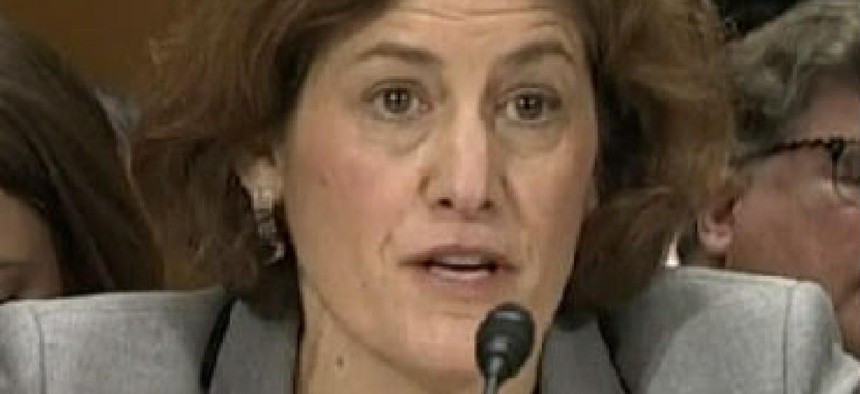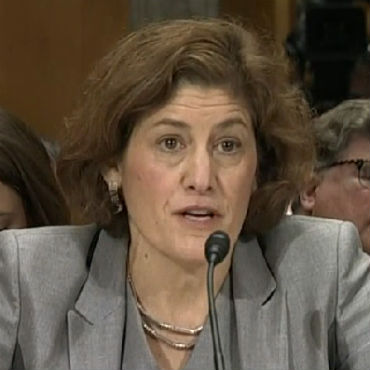Cobert: Unified clearance rules are a work in progress

Deputy director says administration is working to "make continuous evaluation a reality."

Beth Cobert, deputy director for management at the Office of Management and Budget (File photo)
The federal government is making progress on plans to unify and modernize the security clearance process for both feds and contractors, according to a top administration official. A unified procedure is expected to include some form of computer-assisted continuous evaluation of information on cleared personnel, as outlined in a set of recommendations released by the White House in March.
Beth Cobert, deputy director for management at the Office of Management and Budget, said an implementation plan would be put in place "as soon as practical." A cross-agency team was managing the effort, Cobert said, led by Katherine Archuleta, director of the Office of Personnel Management; James Clapper, director of national intelligence; and Michael Daniel, a top White House cybersecurity adviser.
"We are very much looking [for] ways to make continuous evaluation a reality," Cobert said. The effort is the result of a review conducted after the September 2013 Navy Yard shootings that identified several systemic flaws in the background investigation of the shooter, IT contractor Aaron Alexis.
Cobert did not offer any news on a potential successor to her departing boss, Sylvia Burwell, who has been tapped to lead the Department of Health and Human Services. But Cobert made it clear that security clearance reform and other Obama administration priorities would be pursued no matter who occupies the top slot at OMB.
"There is no escaping those [initiatives] under any scenario," Cobert said.
A continuous evaluation model for cleared personnel requires establishing relevant data sources, and then deploying the software and analytics that can spot potential trouble in an ocean of information. Furthermore, the administration's goals "really represent change across very many dimensions," Cobert said. There are numerous pilot programs in place, including at the Defense Department, but to scale up a system for the potentially millions of cleared personnel is "not a simple thing to do," she stressed.
Cobert also addressed a series of executive orders from President Barack Obama that increased the minimum wage for employees of federal contractors and required detailed reporting from contractors on salaries.
"We believe federal contractors can be a model for how all companies should operate," Cobert said, adding that contractors were already "well positioned to set a high bar for practices within industry."
The administration's focus on pay is part of an overall strategy to raise the federal minimum wage and draw attention to issues of income inequality, but it has some contractors concerned that they are being singled out for special rules.
NEXT STORY: Johnson joins CAP as a senior fellow



